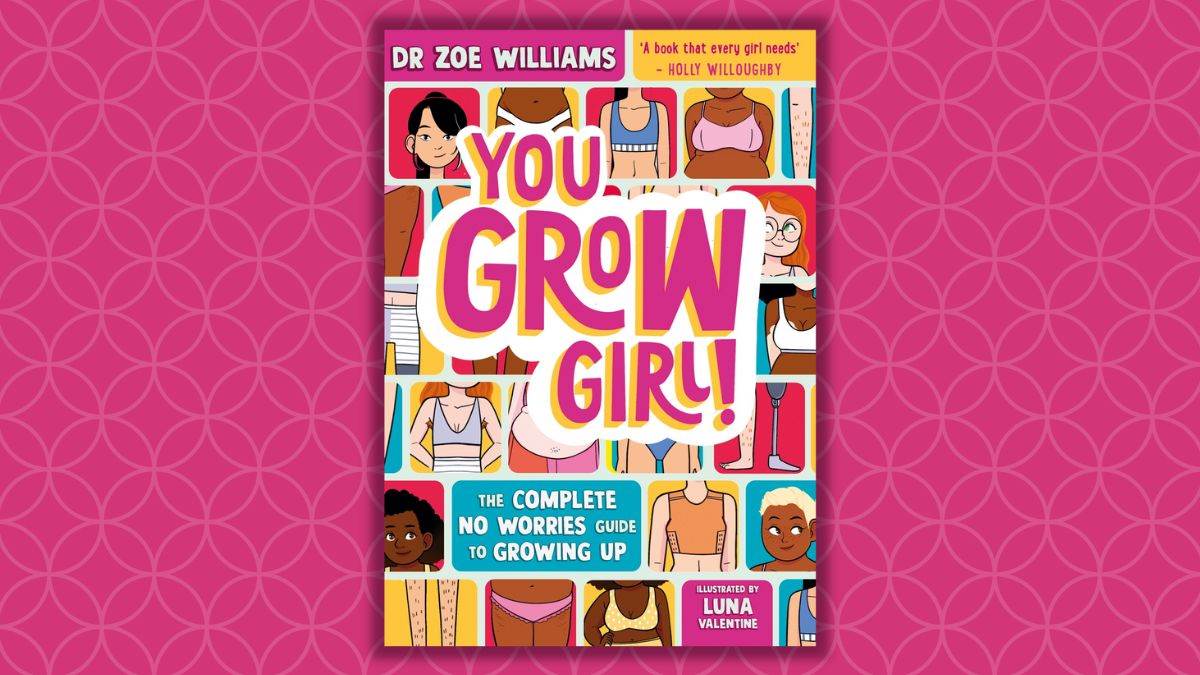5 ways books can help children talk about puberty
Published on: 24 July 2023
Dr Zoe Williams, doctor, author and TV presenter, explains why a guide to puberty, like her You Grow Girl!, can be invaluable to children.
 The cover of You Grow, Girl! by Dr Zoe Williams
The cover of You Grow, Girl! by Dr Zoe Williams
-
The internet is not always age-appropriate or even scientifically correct
Our children have access to instant information at their fingertips, which may not always be reliable, age-appropriate or even scientifically correct. Books are resources that are honest, reassuring, and comprehensive when it comes to answering questions they might have about changes happening to their bodies, their emotions, and their relationships.
-
Books include other relevant topics as well as physical changes
Many books, like You Grow Girl!, cover topics such as body image, mental health, bullying, consent, and ‘being kind’. Kids growing up today face additional challenges to what I did, such as social media. Confidence, respect and self-love are important values for girls and boys in this age group to adopt and maintain. My book explains how we can use social media to our advantage, by ‘curating our feed’ so that it works for us and not against.
-
Books can go into helpful detail
Girls in particular experience so many physical changes and I always say that knowledge is power. The section about periods in You Grow Girl! goes into a little more detail than your typical puberty book. It teaches girls that by having a deeper understanding of the four different phases of the menstrual cycle, they can learn to use hormonal changes to their advantage. For example, phase one of the menstrual cycle is when we have the lowest pain threshold but phase two is when we are at our strongest and is when we are more likely to get a personal best on the athletics track. Whereas phase three is when we are more likely to enjoy social events like parties. It is never too early to know about the biology of your own body.
-
Books are a one-stop shop for all the questions a child may have
Books include glossaries of any previously un-met terms, meaning there’s no need to be distracted through looking anything up. Books on puberty often not only include chapters on mental health, relationships and friendships, but also add vetted and appropriate suggestions of further reading. These can be websites or other books. Plus, in You Grow Girl! there are actionable tasks and activities that help girls build skills such as mindfulness, journaling and supports them towards building a healthy relationship with themselves.
-
Reading is a personal experience for the most personal relationship – with yourself!
The most important relationship you will ever have is the one you have with yourself. Reading a book about how to look after yourself, body and mind, is surely incredibly important for any child.
You Grow Girl! by Dr Zoe Williams and illustrated by Luna Valentine is out now.
If you’d like to explore more useful books about puberty, check out our booklist.
Topics: 9-11 years, 12+, Non-fiction, Sexuality, Personal/social issues, Everyday life, Features





